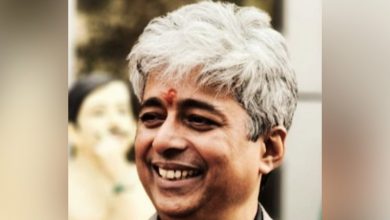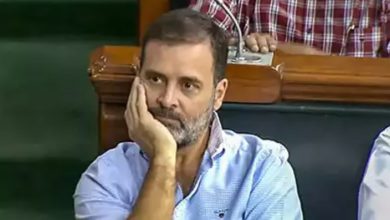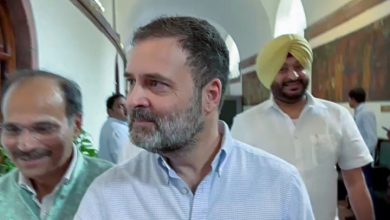
When you’re winning, you’re winning. And though the Bharatiya Janata Party technically won only two of the five assembly elections last week, it now turns out that it won four. Because when you’re winning, you win other people over to your side – one way or the other.
Nobody questions that the BJP won in UP and in Uttarakhand – emphatically – or that the Congress did in Punjab. But in Manipur and in Goa, although the BJP isn’t the largest-single party, it has been asked to form the government. In Goa, the Congress has 17 of the 40 seats, and the BJP only 13 – but former Defence Minister Manohar Parrikar flew back to Panaji to cobble together a majority and keep the Congress out. In Manipur, the Congress has 27 of the 60 seats, and the BJP 21; but again, it’s the BJP that has been invited by the governor to form the government, ending 15 years of Congress rule in the state.
There is nothing illegal, of course, in what the BJP intends. Governors can certainly call on the largest “post-poll” alliance to form a government. It is entirely possible that the mechanisms by which the governor has evaluated which party has a post-poll alliance have been undermined in these cases – as has often happened in the past – but that’s for a court to decide. As it stands, the BJP simply appears to have outwitted the Congress. Were it the case that there is horse-trading and paying off of legislators in India – which we know, of course, is unheard-of – then it would also appear that the BJP has more cash and more of an ability to bribe independents. But, again, this is clearly not the case, since in India, all such processes are always transparent and above-board. But whatever actually happened, the Congress moved too slowly, and the BJP moved swiftly.
The Congress’ complaints thus do seem empty. Why was its national leadership not focused on Goa or on Manipur the moment the results became clear? Amit Shah and company didn’t seem to have taken even an hour off after sweeping UP. Meanwhile the Goa Congress failed to decide on a Chief Minister, the central observer (Digvijaya Singh) seems to have been incredibly inept and secretive, and as a consequence, the Congress lost crucial hours in which Vijai Sardesai, with three seats, went over to the BJP, which promised him three ministers. Arun Jaitley pointed out that the Congress can hardly complain when it didn’t even get its act together enough to write to the governors, which is a pretty reasonable point.
Vijai Sardesai from regional party, Goa Forward, is largely responsible for the BJP’s winning math
What was the Congress thinking? That state governors are still 10 Janpath appointees instead of coming from Nagpur and Ashoka Road? It still has the entitled lethargy it displayed in government, and none of the hunger that a party that has practically no governments to its name should display. If Digvijaya Singh is not sacked for this monumental mismanagement, asked to retire, and sent home to Madhya Pradesh in disgrace, then the Congress deserves to have no state governments at all.
That said, there is indeed a deeper question here. Moral legitimacy does matter as well, particularly in a period when more and more people are disillusioned with the effectiveness of democratic processes, both in India and worldwide. In Goa, for example, the BJP Chief Minister Laxmikant Pareskar actually lost his own seat. It’s difficult to argue that was a vote for continuity. Of course, the institutions will continue to work: Goa’s voters will punish Mr Parrikar next time around doubly hard if they feel he has violated their trust and their mandate. But democratic principles are fragile, and this kind of undermining of people’s votes tends to lead to loss of faith in democracy overall.
In Manipur, meanwhile, the situation is slightly less clear: while the Congress has a higher proportion of the seats, it is also the party that has been in power for more than a decade. The extraordinary rise in the BJP’s vote-share in Manipur this election does indeed suggest that the momentum is with it. It is not difficult to argue in this case that the broad intention of the electorate appears to be in favour of a change, and so asking the BJP to form a government may not be out of line.
Visible in this process was the continuing aura of the inelegant amateur about the Congress, as opposed to the solid, intimidating professionalism of the BJP. The BJP is winning because it is still hungrier, and as willing to subvert institutions and turn them to its side as the Congress was in its heyday. Union Minister Venkaiah Naidu admitted as much. He had no defence, in fact, when he was asked about Congress criticism of the BJP’s behaviour in Manipur and Goa. Instead he reeled off a long list of times that the Congress had behaved in the manner that the BJP has today, from Jharkhand in 2005 to UP in 1998 to Andhra Pradesh in 1983 all the way back to the Emergency. I’m always worried when BJP leaders defend their actions by pointing out that at least the government isn’t imposing Emergency yet. It seems a somewhat low bar.
The BJP is quite right to say that the Congress’ behaviour in the past has been despicable. The Congress is right to point out that the BJP’s behaviour in the present is no different. In the course of these events, however, it’s the voters who lose the most. And, of course, anyone who believes the BJP is indeed still “a party with a difference”.







